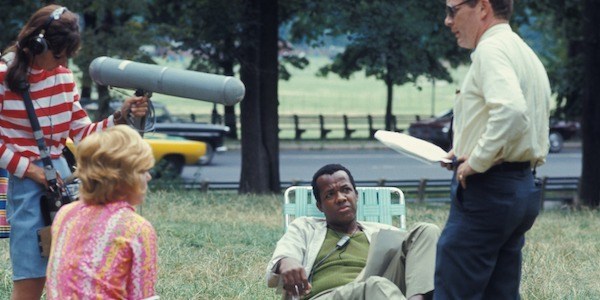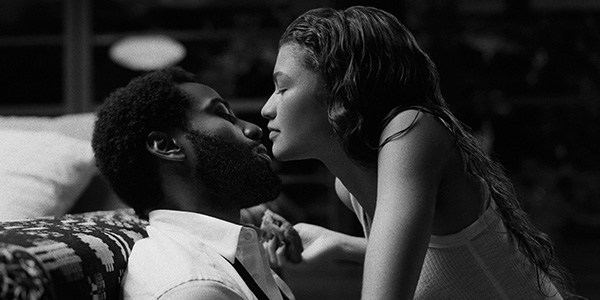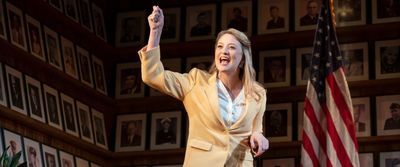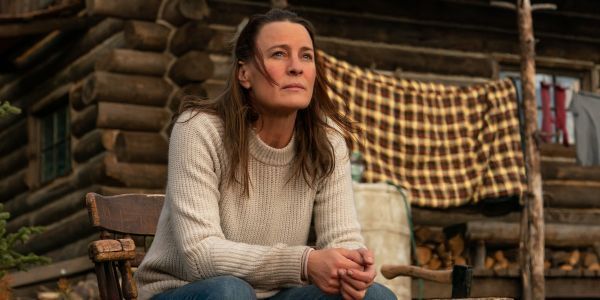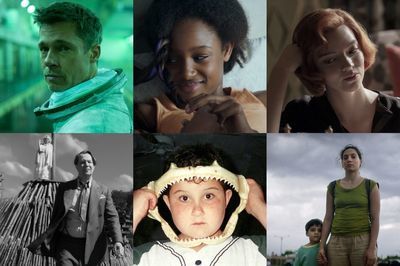Sundance 2021: Interview With Director Jakub Piatek And Actor Bartosz Bielenia Of PRIME TIME
In Jakub Piatek‘s first feature film, he takes us back to 1999, right on the eve of the new millennium. All the angst and uncertainty of that time period gets infused into a hostage situation, where a lone gunman (Bartosz Bielenia) enters a local television station in Poland with eery intentions. Prime Time premiered at the 2021 edition of the Sundance Film Festival, and Piatek and Belenia spoke with Film Inquiry about their collaboration on this unique piece of storytelling.
Wilson Kwong of Film Inquiry: I wanted to start off by asking why you chose to have Prime Time take place at the end of 1999. Was there any additional significance from a Polish standpoint to the decision in timing?
Jakub Piatek: So there are a couple of answers. Story-wise, we felt that it was important that our protagonist didn’t have a smartphone in his pocket and that he couldn’t just livestream everything. Secondly, 1999 is a year that I actually remember, and I actually remember television at that time. And thirdly, when we ran through the archives and old newspapers from 1999, there was this tension in Polish society that we could see, in addition to the tension about the Millennial bug and the world collapsing. I remember my mother took a receipt from the bank that morning of New Year’s Eve, just to have physical proof of her actual credit line in the bank, and that resonated with me. As a team, we always talked about using 1999 to tell a story about contemporary people, and that goes for Bartosz’ character [Sebastian] as well.
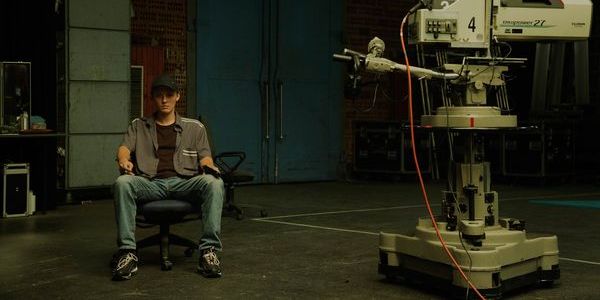
The film mixes in so many different genres, and at times can feel like a hostage movie, while also being a character study or thriller. What were some of the influences you leaned on while developing the film or preparing for the role as an actor?
Bartosz Bielenia: At the very beginning, Jakub sent us a few films to refer to, and one of them was Dog Day Afternoon. For me, the most important one was American Animals because of its tension and sense of false hope, and the realization of a plan going badly. It was really important for me to catch this feeling of futility. There was also a moment where our Director of Photography, Michal Luka, was looking for influences and visuals, and he stumbled upon photos of Davide Sorrenti, a New York-based photographer from the 1990s. That was a really important moment for me because in one of his photos, he’s taking photos of himself and his girlfriend, and there’s just something in his eyes. The feeling of that photo just opened so much in me. I felt like he was on the verge of something, but that he also had this fragility deep down and a special perspective on the world. That was one side of the character, and then I was also looking for the purpose of the character, and that energy that would make you really want to take a gun and go to a TV station to take hostages. I found one interview of Kendrick Lamar where he was talking about Tupac Shakur for his Mortal Man track. He’s just full of this energy, and he’s so sure he knows what he’s talking about, and all these emotions were just there. I was trying to combine that with my own imagination and combine this fragility with rage. That was the most important starting point for the character Sebastian.
Jakub Piatek: From my perspective, I have a documentary background, so I’m always starting with the “I don’t know,” sentence. When we were writing with Lukasz Czapski, we were doing research and also meeting the real people behind and in front of the cameras in television. We also took those consultants into rehearsals in order to create the world of a 1999 TV station. Magda Poplawska, who plays Mira, she was actually working with some television stars in the 1990s. So I was just trying to build this universe by using real people and real elements.
And in terms of developing your character [Sebastian], Bartosz, there’s obviously a lot of intentional mystery about him. But as an actor preparing for and playing the role, how much of that mystery was known? Did you know all the details about his backstory?
Bartosz Bielenia: We knew a lot, but every time we tried to put it into the film, it felt too obvious and gave too much away. But at the same time, it was really important for me as an actor to know his background and where he comes from. So we created all his backstory. We created the last six months before this television event, and we had the whole diary of Sebastian.
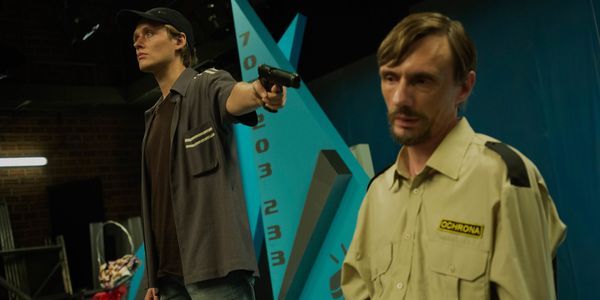
Maybe you can also talk about how it was shooting a film during COVID. Were there any obstacles? And was the experience very different from the usual shooting experience?
Jakub Piatek: This was my first feature film, so if someone asked me to wear a really strange cactus costume and direct a film, I would do that just to be on set! Of course, we had temperature checks, masks and medics on set. But because the story itself took place in a closed space, we had all the cast in place and didn’t leave the city when we were shooting. Everything was really condensed and very achievable in terms of shooting it during COVID.
And what about as an actor, Bartosz? Did you notice any kind of difference at all, given that it was COVID, compared to your earlier films?
Bartosz Bielenia: To be honest, I like this type of work. I really like working outside of the city where I live because then you can just focus on the project. And this overwhelming feeling of danger and the end of the world, that was in people’s minds at the end of 1999. Now, it feels like we’re in the end of something again because something really has changed. In my opinion, it really helped us in a tricky way. But on set, it wasn’t very different, except for people wearing masks.
This actually leads perfectly into my next question. Given that Prime Time takes place in 1999, do you think the themes and messaging of the film still relate to the current times we live in?
Jakub Piatek: I think so. For example, when we shot the sequence where the counter-terrorist team gets into the studio, it was a time when there was an actual street protest against violence by the police here in Poland. While shooting, our phones were vibrating with people from Warsaw telling us about the brutality happening in our city. And when we were editing the film, there was a protest against the abortion law. So you’ve got this feeling in the air that there is tension in society, and there was this strange contemporary aspect to the film.
What kind of audience did you have in mind for Prime Time?
Bartosz Bielenia: I want everyone to see that film!
Jakub Piatek: I’m not really good at targeting an audience, but I’m always trying to make a film that my mom would be proud of, and I’ve got the feeling that I’m always failing because she loves films with princesses, long dresses and huge laughs. I’m always trying my best, but I’m failing constantly. But I think you are also trying to make a film for yourself, not in an egotistic way, but thinking about yourself as a viewer. For example, constructing this character as a kind of mystery and just leaving small clues, that’s the kind of filmmaking and storytelling that I like.
I guess Mira technically wears a princess-y dress, so maybe your mom will like that part of the movie!
Film Inquiry would like to thank Jakub Piatek and Bartosz Bielenia for taking the time to speak with us!
Does content like this matter to you?
Become a Member and support film journalism. Unlock access to all of Film Inquiry`s great articles. Join a community of like-minded readers who are passionate about cinema – get access to our private members Network, give back to independent filmmakers, and more.
Join now!
